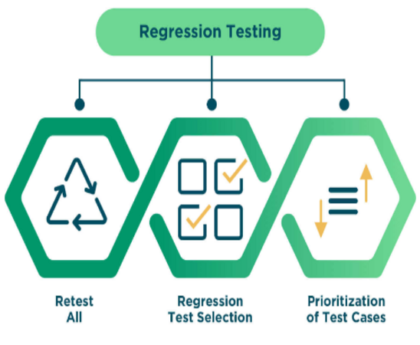How To Cope With Stress In 2024: What Works And What Doesn’t
Are you feeling like stress is your constant companion these days? You’re not alone. We all deal with it and most of us have some tools to cope with it. Some of those work wonders, while others … not so much. In this blog post, we will take a closer look at what stress is, coping with stress In 2024 why it’s more than just an annoyance, and which strategies will keep it in check.
Okay, What is Stress Exactly?
In simple terms, stress is your body’s response to any demand or challenge. It works similarly to an alarm system. When you’re faced with a challenge, your body releases hormones like adrenaline and cortisol, encouraging you to act. Initially, this challenge was something that threatened your life. Today, it can be anything from work deadlines to social pressures.
You may often hear the words “stress” and “anxiety” used interchangeably or mentioned together, but they’re not quite the same. The former is a direct response to a perceived threat. The latter, in turn, is more about the anticipation of future threats. Anxiety is often less specific, more prolonged, and can even occur without an obvious external trigger. While stress can be beneficial in short bursts (think of that extra push to meet a deadline), anxiety tends to be chronic and interferes with your daily life.
What’s So Bad About Stress?
So do you necessarily have to COPE with stress? Can’t you just ignore it? You can’t because unmanaged, it can lead to
- physical health issues like headaches, muscle pain, and even heart problems;
- mental health struggles like anxiety, depression, and other mood disorders;
- sleep problems;
- impaired concentration and memory when it is hard to focus and remember things;
- relationship strain because you may become irritable and hard to be around;
- reduced work or school performance.
7 Working Tips for Coping with Stress
#1 Exercise Regularly
Physical activity boosts endorphins, your brain’s feel-good neurotransmitters. It also helps distract you from daily worries. Even if you have very little time, it’s better to do some exercises than to do none.
Start small. If a gym session feels overwhelming, try a brisk 20-minute walk, a quick yoga session at home, or even dancing to your favorite music. Aim for at least 30 minutes of moderate exercise most days. Remember, it’s about consistency and movement, not intensity.
#2 Mindfulness
Mindfulness keeps you grounded in the present moment. This is super important because it reduces the impact of stress from past worries or future anxieties.
Begin with just 5 minutes a day of meditation using apps like Headspace or Calm. You can also practice mindfulness during daily activities. Try to savor each bite of your meal or notice the sensations while taking a shower. The task is to bring full attention to the present moment.
#3 Sleep
During sleep, your body and mind repair and rejuvenate. If you don’t get enough of it, the effects of stress will be more pronounced for you.
Create a sleep-friendly environment. Dim the lights an hour before bed, reduce screen time, and maintain a consistent sleep schedule. If you struggle to fall asleep, try relaxation techniques like deep breathing or progressive muscle relaxation.
#4 Balanced Diet
The right nutrients can combat stress hormones and boost your mood. So your task is to make sure your body is receiving them consistently.
Focus on a diet rich in vegetables, fruits, lean protein, and whole grains. Incorporate tasty snacks like chocolate edibles that contain kava and omega-3 and promote deep relaxation. Avoid high-sugar and high-fat foods, which can lead to energy crashes and mood swings.
#5 Connect with Others
Social interactions can provide emotional support and offer different perspectives. They even trigger hormones that reduce stress.
Schedule regular catch-ups with friends or family. Even if it’s a quick phone call or a text chat, you’ll feel the effects. Joining clubs or groups with shared interests is also a good idea.
#6 Realistic Goals
Goal setting is generally good but if your goals aren’t realistic, it can (and, most likely, will) lead to unnecessary stress and a sense of failure. So, keep it real. Break down big tasks into smaller, manageable steps. Learn to differentiate between “urgent” and “important,” and prioritize. Be flexible with your expectations and adjust your goals as life changes.
#7 Learn to Say No
Being helpful and easy-going is, no doubt, good. Overcommitting, in turn, can lead to burnout. Assess your priorities and consider if new commitments align with them. Practice polite but firm ways to decline. Remember, saying no to one thing means saying yes to something else (often to your well-being).
4 Methods That Don’t Work
- Ignoring the Problem
Ignoring stress is like leaving a small leak unrepaired — it only gets worse over time. It can accumulate and manifest in more severe physical or mental health issues coping with stress In 2024. So the first step is to acknowledge it. Recognize its sources and how it affects you. This is a good start.
- Overindulging in Alcohol or Food
While it might provide temporary relief, overindulgence can become a harmful coping mechanism. It doesn’t tackle the root cause of the issue so it’s better to find coping with stress In 2024 healthier ways to unwind. This could be through exercise, hobbies, or socializing.
- Procrastination
Procrastination may, indeed, offer momentary relief. The issue is that it often leads to a vicious cycle of increased stress as deadlines loom closer. Break down tasks into smaller ones and complete anything that seems not too hard to you now. Remember, starting is often the hardest part. Once you begin, momentum can build.
- Taking It Out on Others
While venting might feel good in the short term, it can strain relationships and leave you feeling guilty or embarrassed afterward. It also doesn’t address the actual cause of your problems.
So you still need to learn healthy ways to express your feelings. Communication is key. Expressing what you’re going through to a trusted friend or family member. This can coping with stress In 2024 provide relief and they might offer valuable advice or perspective.
***
Try out these tips, be patient with yourself, and most importantly, don’t be afraid to seek professional help. Stress is a part of life, but it doesn’t have to control it.




